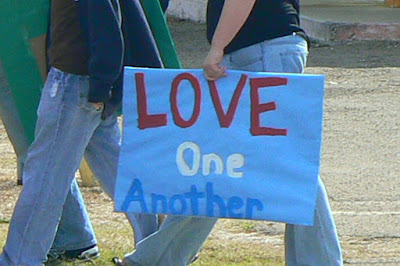If you are a church going person, you may have been exposed to an offertory prayer that goes something like this: Everything comes from God. Everything belongs to God. Perhaps you chuckle a little when you realize that the implication is that you should probably put a little more into the offering plate. Nevertheless, you just give the usual amount in a well sealed envelope with your name on it ignoring the hypocrisy you just committed by not giving everything as Jesus suggested to the rich young ruler (Mark 10:21). Then you recover a little bit when you remember Jesus said “give to the poor;” nothing about giving it to the church.
Private property rights have become a lucrative source of income for lots of lawyers. The concept of private property is incredibly complex no matter how you look at it legally, economically, sociologically, philosophically, etc. and it has changed over time. The early Bible writers describe how Abraham’s and Lot’s herdsmen squabbled over grazing land for their herds (Genesis 13:7-9). Maybe, at the beginning, it was over hunting grounds for the first hunter-gatherers, but definitely by the time people began to cultivate land. Other milestones like the emergence of large-scale commerce, the industrial revolution, etc. have shaped how we look at property beyond hunting bows, spears, toothbrushes and underwear.
To complicate matters even further, great wealth can buy you all kinds of power. It can be as far reaching as power over the leadership of a country to the hungry person who will do whatever you want for a meal or possibly even more likely for a fix of drugs. Either way, when you claim something as your own, you simultaneously deny that very same right to everyone else. You might even say that your act is not very different from robbery and some people actually say that.
There is little doubt that the toxic combination of power and wealth is the source of a great deal of suffering and inequality in the world today. The tragedy is that we know what to do about it. We just don’t.






